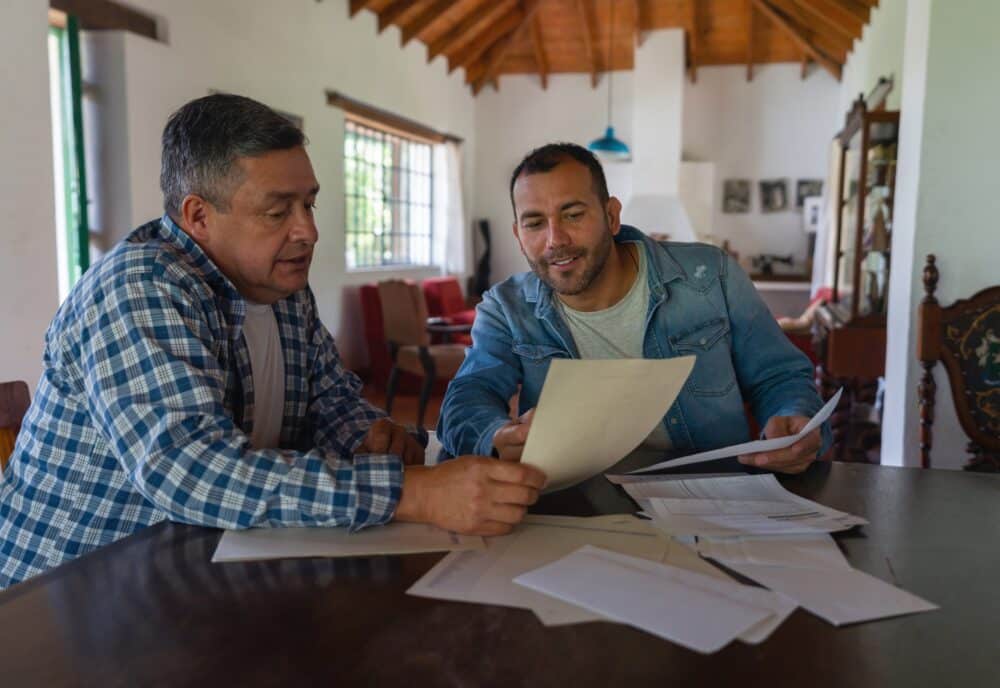Eight signs that gambling is no longer just for fun
August 26, 2021
On occasion it can be fun to bet on the outcome of a sporting event, buy a Lotto ticket, head to the casino with friends or play bingo when Covid doesn’t get in the way – and it’s never been easier.
There are pokie machines at most bars, mobile betting apps at our fingertips, TABs spread around the country and Lotto tickets sold at supermarkets and dairies.
That could be why The Department of Internal Affairs gambling figures for 2020 were the equivalent of every adult New Zealander spending $572 on gambling.
This figure was broken down as:
$128
$160
$80
$204
The accessibility can make it easy to lose control of your gambling which often results in unmanageable debts.
In fact, when we create a financial plan with our clients, 16% of our clients need their budget to include gambling spend.
To help you stay in control and avoid unmanageable debt, we’re sharing eight signs that will help you identify when gambling is no longer just for fun.
1. Chasing your losses
A key to manageable gambling is setting a limit, including time, and sticking to it.
When placing a bet, it’s important to keep in mind there’s a chance you’ll lose your money rather than focusing on the potential glory.
The stress of losing money that wasn’t meant to be lost or not being able to walk away from a bet can make you want to chase your losses.
This can lead to bigger bets to make up for losses, which usually results in more losses.
Chasing your losses usually means you’re gambling with money you haven’t accounted for.
Gambling money you haven’t accounted for could result in needing to borrow money, which could eventually result in unmanageable debt.
If you’re chasing your losses, you’re no longer gambling for fun and you’re in danger of accruing unmanageable debt.
2. Spending more on gambling than you wanted
Affordable gambling is planning out how much money you’re willing to spend and then walking away once it’s been spent.
It’s easy to get caught up in the thrill and adrenaline of gambling, so it’s important to be able to accept defeat once it happens, otherwise you could find yourself needing to borrow money to stay afloat.
If you end up spending more money gambling than you wanted, chances are you’ll be disappointed and have a feeling of regret once it’s over.
Be sure to set your spend limit and stick to it in order to keep gambling fun.

3. Hiding your gambling
If you’re hiding something, it’s usually because you know you shouldn’t be doing it.
Hiding gambling usually means you’re not sticking to the limits you’ve set and not walking away when you should be.
This is a sign you are losing control of your gambling which can negatively impact your financial situation.
Hiding your gambling could include behaviours such as:
These behaviours are usually a sign that the fun has stopped.
4. Feeling guilty about gambling
Similarly, having that sinking feeling inside you probably means you’re doing something you know you shouldn’t be.
It could be for a number of reasons including:
If you’re feeling guilty when gambling but you find you can’t stop, you should reach out for support as this is an early indication of addiction.
If it doesn’t feel right instinctively then it’s probably not just for fun.
5. Losing interest in other stuff
If gambling is constantly at the forefront of your mind, it may become your focus, causing you to be less interested in anything else.
This can be problematic and lead to more addictive behaviours.
If not addressed, this could result in: spending money that should be used for essential costs like bills, to ⇒ running out of money, to ⇒ borrowing money, to ⇒ eventually ending up with unmanageable debt.
If your thoughts are consumed by gambling, it’s probable that it’s no longer just for fun.

5. Losing interest in other stuff
If gambling is constantly at the forefront of your mind, it may become your focus, causing you to be less interested in anything else.
This can be problematic and lead to more addictive behaviours.
If not addressed, this could result in: spending money that should be used for essential costs like bills, to ⇒ running out of money, to ⇒ borrowing money, to ⇒ eventually ending up with unmanageable debt.
If your thoughts are consumed by gambling, it’s probable that it’s no longer just for fun.
6. Borrowing money or using someone else’s
You should only gamble money you already have and are happy to lose. You shouldn’t be taking out a loan or borrowing from friends to gamble or using someone else’s money – including your partner’s.
If you’re using someone else’s money without their knowledge, you could be causing economic harm.
Click here to learn more about economic harm
Borrowing money to gamble is extremely dangerous and could mean you’re either already in debt or you’re walking down the path to debt.
If you’re borrowing money to gamble, you’re fuelling an addiction and the gambling is no longer for fun.
Click here to get support to take back control of your gambling
7. Feeling regret after gambling
If you’re feeling regret after gambling it could mean you’ve not stuck to the limit you’ve set for yourself.
By not sticking to a limit or spending money you’re not equipped to lose places you at risk of potentially needing to borrow money.
If you’re feeling regret after gambling, the chances are the fun has stopped.
8. Skipping work or time with family and friends in favour of gambling
Prioritising gambling over family, friends or work is a sign that you may have lost control of your gambling and it’s no longer for fun.
If you’re losing control or have lost control of your gambling. It won’t just impact you. Research has shown that problem gambling will impact close family and friends as well.
If you’re missing work to gamble, it could mean your outgoings are higher than your incomes.
If this is the case, you’re putting yourself at risk for financial risk and relying on loans to stay afloat.
Gambling can be manageable and fun if you set limits, including time, and stick to it.
If you’re withdrawing from areas you were once interested in it probably means the gambling isn’t just for fun.
Conclusion
If you can set a limit and stick to it gambling can be fun.
If you’re finding it hard to walk away when you’ve reached your limit, thinking about gambling regularly, or you’re spending money you shouldn’t be – you could be putting yourself at risk.
Whether you’re young, old or anywhere in between, losing control of your gambling habits is serious.
If gambling stops being fun and becomes a problem, it’s easy to do serious damage to your finances, personal relationships, employment situation or family circumstances.
Be honest with yourself. If any of these signs are familiar, it could be time you take a closer look.
Finding support
The free Gambling Helpline (0800 654 655) is confidential and available 24/7. Its staff are trained to deal with a whole range of issues related to gambling and one call may be all that’s needed to get back on track.
To read more about gambling and how to keep it manageable, visit https://www.safergambling.org.nz/
Unmanageable debt
If you’re struggling with unmanageable debt, our DEBTsolve programme can help you take back control of your financial situation.
Our specialist debt coaches will work with you to understand your situation and create a plan that will help you get on top of your debt.
Our free DEBTsolve programme combines debt coaching, advocacy and debt solution loans of up to $10,000 to help with your unmanageable debt.
Loan Worker Vijay shared:
“I often see clients chasing their losses, accumulating debt and depleting their savings because of gambling. Being able to recognise the warning signs will help prevent our clients entering financial hardship and struggling to stay afloat”.
